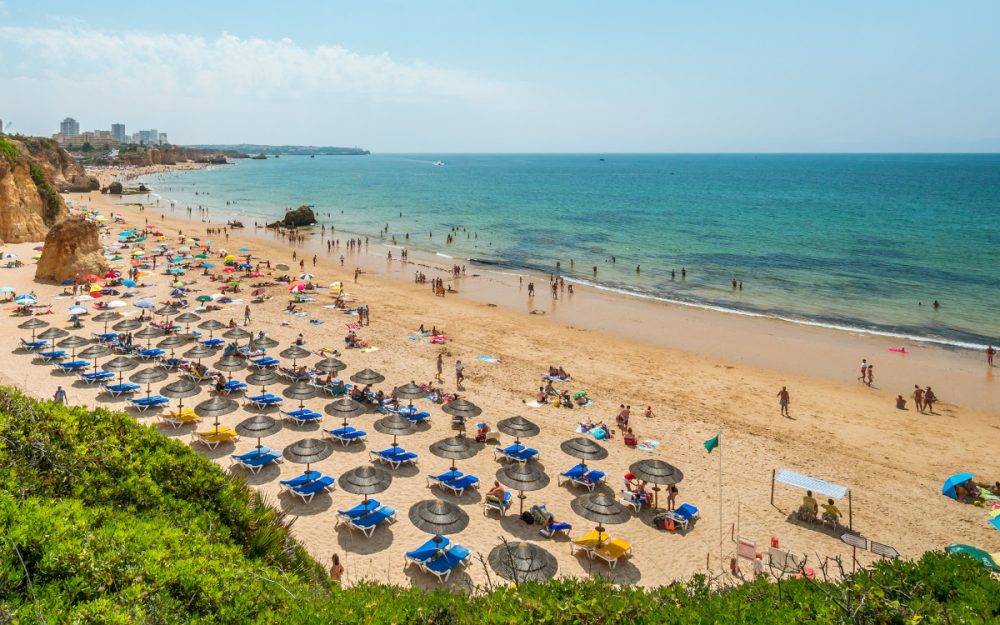People with autism need to be able to travel smoothly, with lots of planning and, most importantly, flexibility.
The staff of our travel and tourism sectors require a deeper understanding and acceptance of neurodiversity
One percent of the world’s population is on the autism spectrum. While that might not sound like much, this equates to over 75 million people. In addition, and of more concern, is the fact that autism prevalence has increased by 178% over the past two decades.
In South Africa, it’s estimated that around 0.08% to 2% of residents are on the spectrum. Just like people living with a physical disability, people with autism require special assistance and consideration in their day-to-day lives, as well as on their travels.
“There are two main things most people with autism need to be able to travel smoothly and comfortably: lots of planning and, most importantly, flexibility,” says Euan McNeil, Managing Director of Flight Centre Travel Group.
“Just a few offerings that can streamline travel for these travellers are things like priority boarding and ‘quiet sections’ for more relaxed check-ins at airports and accommodations. Some airports, like New York’s JFK International Airport and Dubai International Airport — the world’s first airport to receive Certified Autism Centre™ designation — already offer programmes allowing individuals on the spectrum to visit and practice navigating the airport before their date of departure,” McNeil adds.
It’s these small courtesies and considerations that can completely transform the travel experience for someone on the spectrum. And with inclusivity top of the agenda across the globe, these considerations are not only becoming more prevalent; they’re becoming an expected norm.
 Portugal is known for its autism-friendly beaches, particularly in the Algarve region.
Portugal is known for its autism-friendly beaches, particularly in the Algarve region.
So, how does South Africa stack up when it comes to autism-friendly travel? What needs to change? And how can travel agents play their role in streamlining their neurodiverse clients’ journeys? McNeil provides answers below.
Is South Africa autism-friendly?
While there’s growing awareness around neurodiversity in South Africa, our country is still lagging behind in many ways.
“South Africa has so much potential to become an autism-friendly travel destination. After all, we offer some of the most remote, peaceful, sensory-friendly locations in the world. For example, sensory overload is highly unlikely somewhere in the bush or somewhere secluded in the mountains, but the reality is that most staff members at camps and lodges simply aren’t trained to assist guests with autism. They don’t have any knowledge of these guests’ sensory needs and triggers, they aren’t aware of how best to communicate with them, and they don’t know what action to take to prioritise their safety,” explains McNeil.
“The reassuring news, though, is that with a bit of training and sensitivity, South Africa could quickly become more than just autism-friendly – our country could become a safe haven for travellers on the spectrum.”
We have a lot of work to do considering we’re competing with destinations like Portugal, Ireland and the UK. Portugal has been named one of the top autism-friendly destinations in the world, with several sensory-friendly accommodations and attractions, such as the Oceanarium in Lisbon, Europe’s largest indoor aquarium. The country’s also known for its autism-friendly beaches, particularly in the Algarve region. The UK offers special autism-friendly theatre performances and theme parks, while Ireland is home to 12 designated autism-friendly towns, including Clonakilty, the first Irish town to receive this designation. Ireland also has 212 organisations accredited as Autism Friendly Champions.
What makes a destination/accommodation/attraction autism-friendly?
For a place or attraction to be autism-friendly, owners or organisers need to have made specific accommodations and adjustments to create a welcoming and accessible environment for individuals with autism and their families.
“Undoubtedly, the most crucial aspect of an autism-friendly destination or attraction is proper staff training. Employees need to understand and accept autism. They should also be equipped to recognise the signs of sensory overload and provide empathetic support when required,” says McNeil.
But, of course, recognising and empathising with someone experiencing sensory overload isn’t enough. Travellers should also have access to quiet rooms or spaces, sensory kits with noise-cancelling headphones, and adjustable lighting to reduce sensory stimuli.
 Employees in the travel and hospitality sectors need to understand what the special needs are of people with autism.
Employees in the travel and hospitality sectors need to understand what the special needs are of people with autism.
“Another vital component is to help neurodiverse travellers and guests understand what to expect. Owners and organisers can achieve this by providing detailed visual guides and opportunities to ‘practice’ ahead of time to help reduce anxiety. Flexible policies are also key — for example, allowing neurodiverse guests to bring their own food and drinks, skip queues, and to leave and re-enter an attraction at any time,” McNeil adds.
“Ultimately, if your neurodiverse guests and their families feel safe, comfortable and accepted, you’ll know you’re getting it right.”
How travel agents can play their part
The role of a travel agent is to remove the stress from travel planning, while also being there to assist if anything doesn’t go according to plan during the trip itself. Travel agents help to make the unpredictability of travel a little more predictable — and that goes a long way for all travellers, and neurodiverse travellers in particular.
According to Gary Bernstein, a neurodiverse frequent traveller, for many people with autism, the biggest travel concern is the unknown and the potential for hiccups throughout the journey.
“If there are any delays or changes to travel plans, this is a big worry and can trigger a domino effect, negatively impacting the rest of the trip.”
Having an expert on hand to help whenever necessary can be extremely calming for a neurodiverse traveller. But the question is, are local travel agents properly equipped to support their clients with autism?
McNeil says there’s still quite a way to go: “Along with a need for more autism-friendly accommodations and attractions for agents to recommend, there’s also a need for more education for agents around neurodiversity. Agencies need to train their agents on how to ask all the necessary questions without seeming invasive, as well as inform them of these travellers’ unique needs and expectations.”
Ultimately, the journey towards becoming a truly autism-friendly destination demands a multi-faceted approach, encompassing not only physical adjustments to spaces but also a deeper understanding and acceptance of neurodiversity within the tourism sector.
“Business owners can help our beautiful country reach its full potential through staff training on inclusivity across the board. That is the key to empowering the travel and tourism industries to offer memorable and meaningful experiences for all travellers, neurotypical and neuroatypical alike,” McNeil concludes.